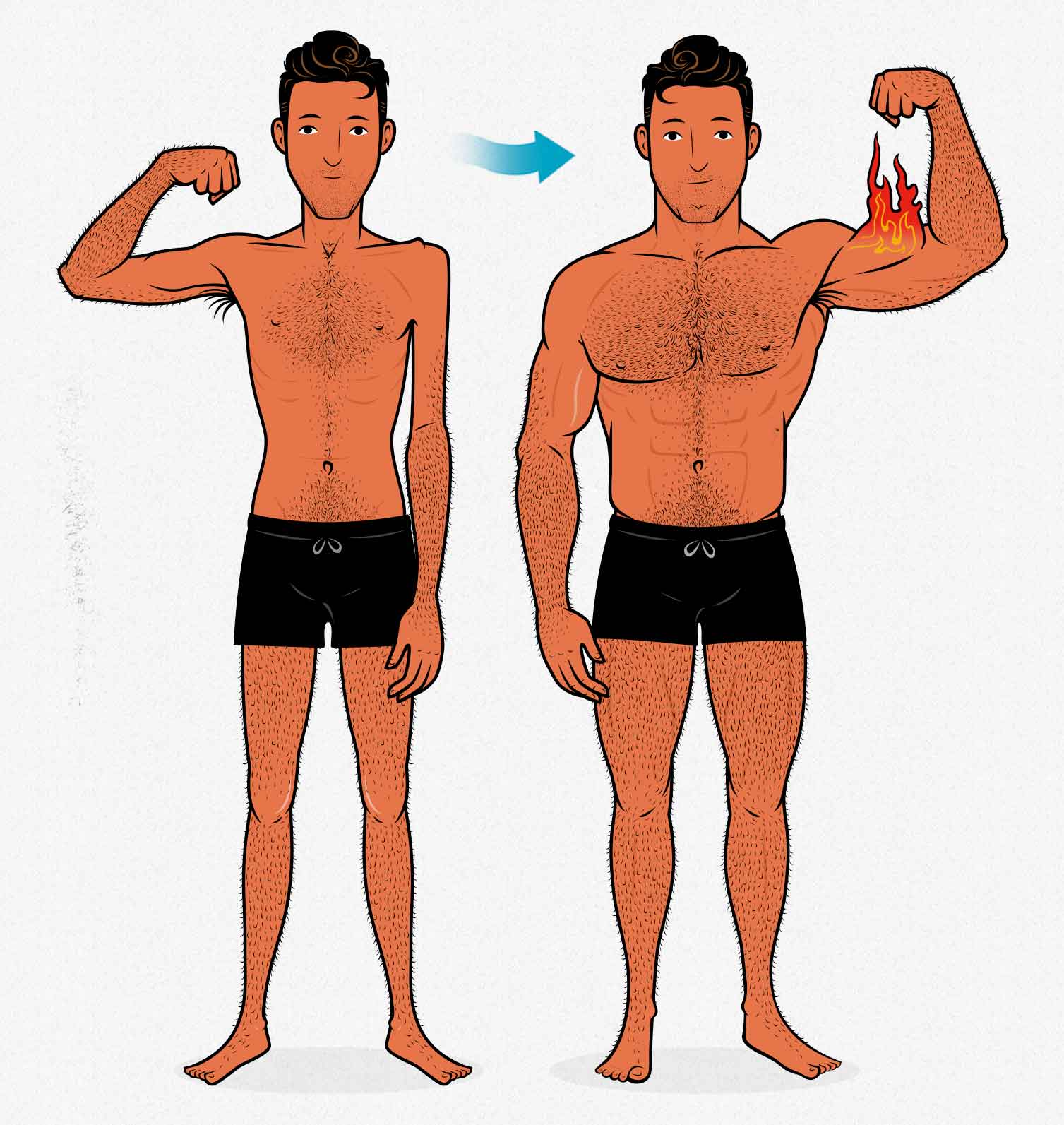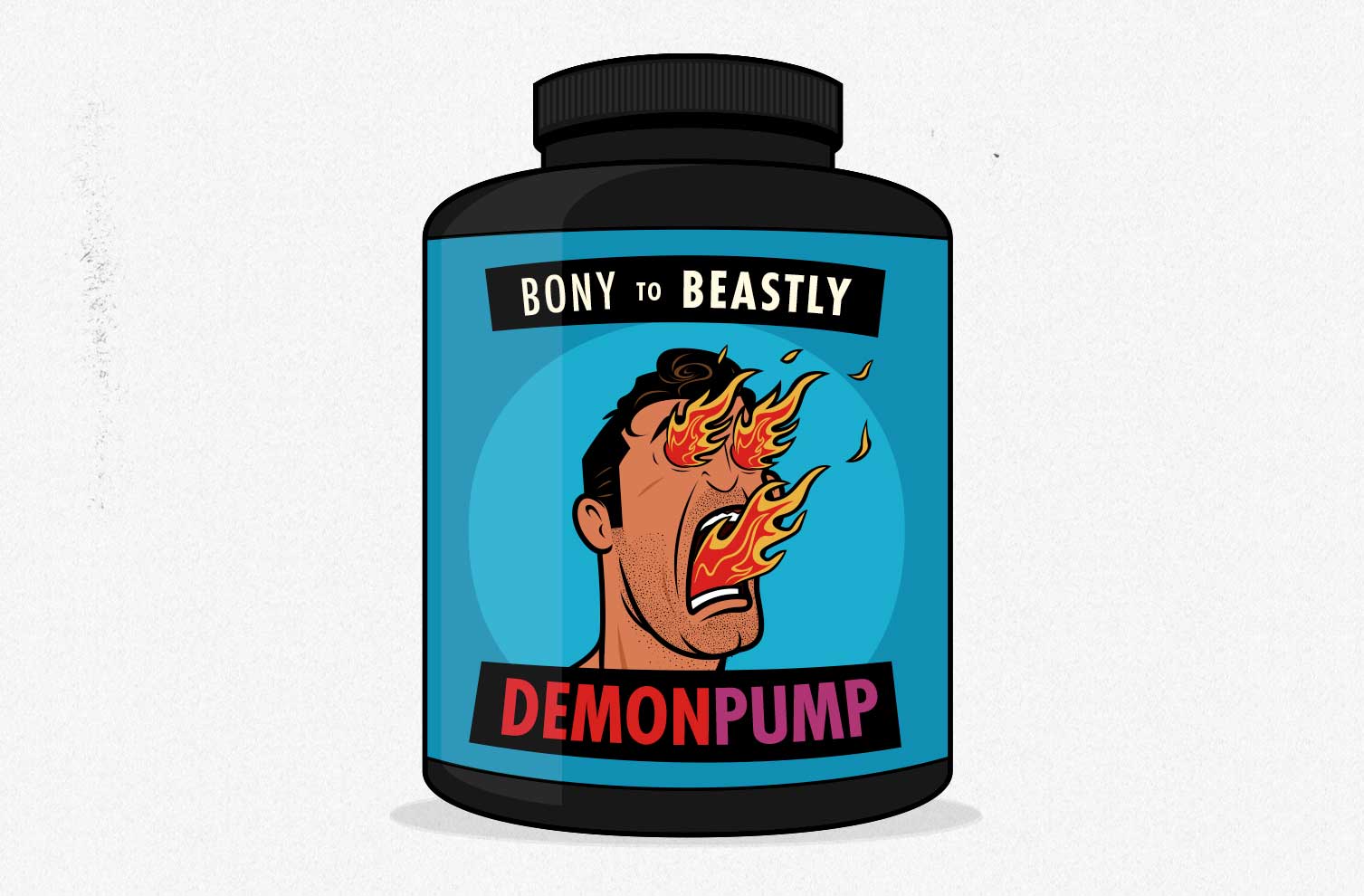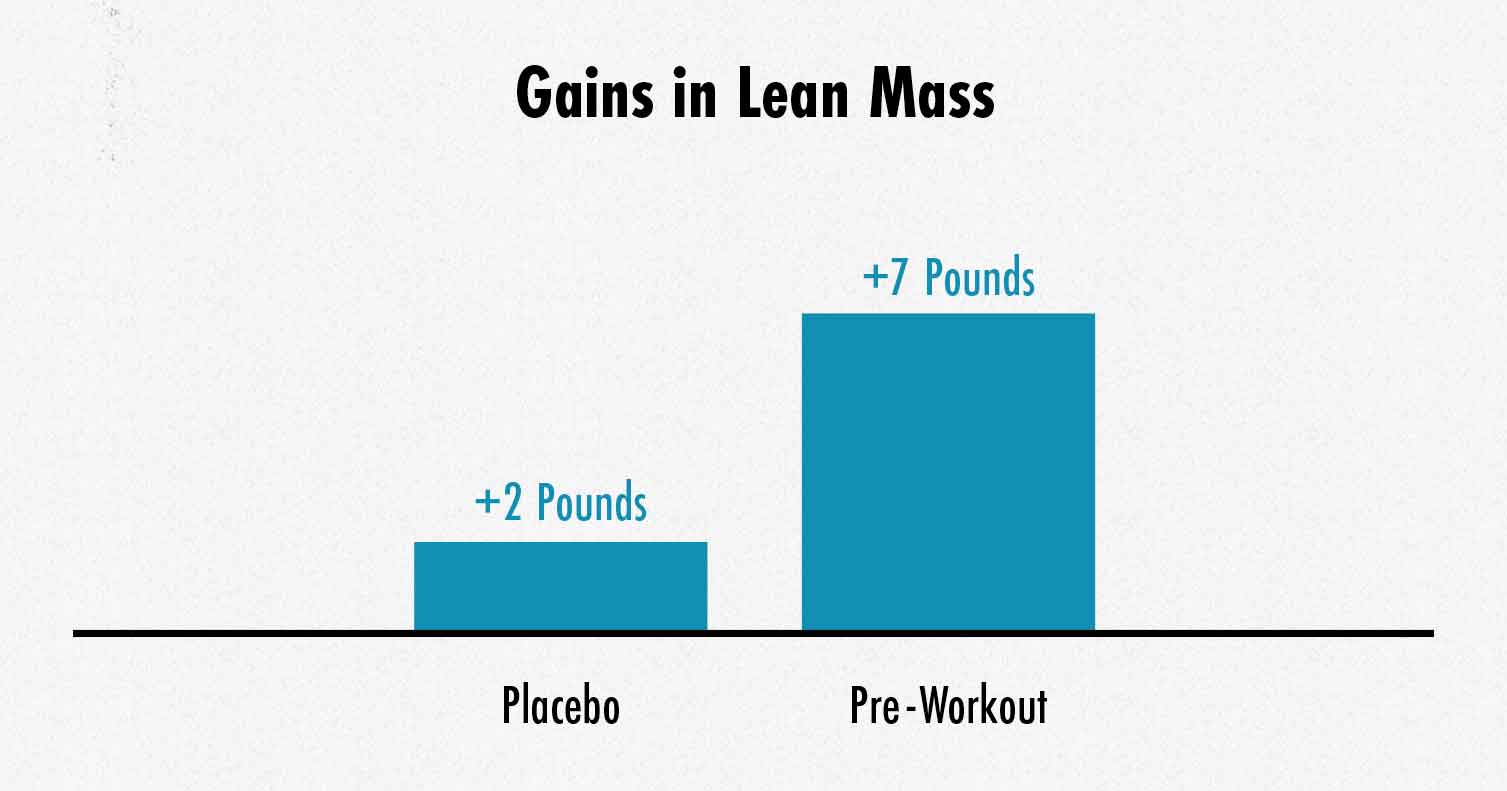
Are Pre-Workout Supplements Good for Building Muscle?
We’ve seen some heated discussions about ingredients and dosages founds in pre-workout supplements. Does this particular brand have at least six grams of citrulline malate? Is it the correct ratio of citrulline to malate? Is there theanine alongside the caffeine to blunt the jitters? Are they using proprietary blends to hide subpar dosing? Unless you’re super into supplement research, it can be hard to parse.
But the more important question is, will taking a pre-workout supplement actually help you build muscle? Instead of diving right into min-maxing the ingredients and dosages, maybe we should take a step back and see if pre-workout supplements even work.

What Are Pre-Workout Supplements?
Pre-workout supplements are designed to give people more energy. They’re similar to energy drinks. The difference is that pre-workout supplements aren’t designed to give you more energy in general; they’re designed to give you more energy so that you can build more muscle. Still, many of the stimulants are the same.

A typical pre-workout contains a few different stimulants: 100–400mg of caffeine, maybe some theanine, and perhaps some b-vitamins (such as niacin). Alongside the stimulants, they often contain small doses of muscle-building supplements, such as creatine, citrulline, and beta-alanine.
Do Pre-Workouts Increase Muscle Growth?
There’s research showing that pre-workout supplements can indeed increase muscle growth. For instance, a 4-week study by Pickering et al. found that participants supplementing with Bang Pre-workout Master Blaster (not the energy drink) gained around four times as much muscle as the participants taking the placebo:

Bang is a pre-workout supplement that contains several different ingredients, all of them evidence-based, and all of them properly dosed:
- 350 milligrams of caffeine.
- 5 grams of creatine.
- 2.5 grams of betaine.
- 2.4 grams of beta-alanine.
- 6 grams of citrulline malate.
- 7.5 grams of branched-chain amino acids (BCAAs).
This is about as good as a pre-workout supplement could get. But before you run out to buy some, remember that Bang funded the study, it’s just a single study, and the extra muscle growth might be explained by just two ingredients: caffeine and creatine. Caffeine can indeed improve workout performance. And creatine can indeed increase your rate of muscle growth. In fact, if we look at a meta-analysis evaluating the effects of creatine, we see that creatine causes similar increases in muscle growth all by itself.
Still, perhaps some of the other ingredients help. There isn’t that much research. But there’s some. Let’s take a closer look.
The Best Pre-Workout Ingredients
There are a lot of muscle-building ingredients that people take quite seriously. For instance, they look at the citrulline dosage, then see what ratio it has to malate. The thing is, will citrulline malate really help you build muscle? Does it matter what the dose or ratio is? Probably not. It might help slightly, but the latest meta-analysis didn’t find much of an effect. Hard to say if taking citrulline malate would actually yield any extra muscle growth.
Still, some pre-workout ingredients are better than others. Here’s what to look for:
- Caffeine: if you take something along the lines of 300mg of caffeine, it can boost your workout performance. You might be able to eke out some extra reps. But that’s a massive amount of caffeine, especailly if you train in the evening (because it could harm your sleep). I’d recommend taking enough caffeine to put you in the mood to work out. A cup of coffee or a shot of espresso. Maybe 100 milligrams—that kind of dosage.
Popular ingredients that don’t do very much:
- Betaine (also trimethylglycine, choline, or nitrate). If you take 4 grams of betaine before working out, you might get mild and unreliable performance benefits. However, it doesn’t seem to increase muscle growth by very much, if at all (meta-analysis). Plus, you can get the benefits of betaine by eating spinach or beets as part of a regular, healthy diet. We recommend having some spinach in a smoothie or salad.
- L-citrulline (or citrulline malate, malic acid). This is the pump supplement. It’s an amino acid that turns into l-arginine in your kidneys, increasing your nitric oxide synthesis. Put more simply, it can increase your blood flow and give you a better muscle pump. However, it doesn’t seem to affect muscle growth much, if at all (study).
- L-Theanine is a calming supplement that’s naturally occurring in tea. In pre-workout supplements, it’s used to reduce the jitters some people get when taking high doses of caffeine. It doesn’t seem to help people gain strength (study). It hasn’t been studied for muscle growth, but there’s no reason to think it would help.
- Vitamin C tastes great and can be healthy, at least when it comes from whole foods. There’s only one study that measured muscle growth from taking vitamin C supplements (study). It showed no benefit.
- L-Tyrosine supplementation might help reduce acute stress. There’s no reason to think it would improve muscle growth.
Ingredients that probably shouldn’t be in a pre-workout:
- Creatine is the most effective muscle-building supplement. The problem is, it should be taken every day. Pre-workout supplements shouldn’t be taken every day, especially if they’re packed full of stimulants. As a result, it’s better to buy a tub of creatine monohydrate and have 5g every morning with a glass of water.
- Beta-alanine can improve workout performance and might slightly increase muscle growth (study, study, study). Thing is, it’s like creatine. For it to work properly, you should take around 4 grams every day. Plus, it’s known for causing parasthesia, which is harmless but feels like being devoured by centipedes. You can avoid that sensation by having 1 gram 4 times per day. In pre-workout drinks, they usually underdose it on purpose to minimize the discomfort.
So, overall, it seems that creatine is responsible for most, if not all, of the benefits of pre-workout drinks. The other ingredients don’t have much evidence behind them. Most of the evidence we do have shows no effect. For the best results, then, we recommend buying creatine separately and taking it properly: 5 grams every day.
What’s the Best Pre-Workout Supplement?
The most extensively studied pre-workout drink is coffee. In the BMJ’s umbrella review of 201 meta-analyses, they concluded that “coffee consumption seems generally safe within usual levels of intake, with summary estimates indicating largest risk reduction for various health outcomes at three to four cups a day, and more likely to benefit health than harm.”
If we’re interested in workout performance, the caffeine in regular coffee seems to provide similar performance benefits as caffeine anhydrous powder (study). Just watch out for decaf—the caffeine is underdosed.
I recommend having a cup or two of coffee, getting you 75–150 milligrams of caffeine. That’s enough to improve your energy, not your workout performance. Nothing crazy, just a regular intake of coffee that’s good for your health and will give you a bit more pep in the gym. (Though if you work out in the evening, it’s probably best to skip the caffeine altogether.)
Summary
It might sound like we don’t like pre-workout supplements. That’s not quite the case. We do like them. Drinking a pre-workout feels like drinking an energy drink. It feels like drinking liquid life. And it has the veneer of being more justified because it’s part of a fitness lifestyle. But it’s not part of a fitness lifestyle. Not really. Tea and coffee are healthier sources of caffeine.
As for building muscle, pre-workout supplements do help. Almost all of them contain creatine, and creatine does indeed increase our rate of muscle growth. The thing is, you should be taking creatine every day. It’s not a pre-workout supplement. Better to buy it separately. You’ll get even better results that way.
The secondary muscle-building ingredients that pre-workouts boast, such as citrulline malate, betaine, and beta-alanine, aren’t very effective. Or at least there’s no good evidence to prove they are. Most studies show negligible, questionable, or statistically insignificant benefits. As things currently stand, we don’t see any reason to take them.
The best pre-workout ingredient is betaine, but the best sources of betaine are leafy green vegetables and beets. The best way to get the benefits is to eat some salad or blend some spinach into a smoothie. That’s the healthy way to do it, anyway.
Instead of using a pre-workout supplement, we recommend having a cup of coffee (or tea) if you want some extra energy before working out. Coffee is a natural source of caffeine; it’s packed full of other nutrients (such as chlorogenic acid), it’s quite safe, and the lower dose is less likely to harm your sleep. But if you like pre-workout supplements, that’s okay, too. We’ve certainly gone through periods of using them.

If you want more muscle-building information, we have a free bulking newsletter for skinny guys. If you want a full foundational bulking program, including a 5-month full-body workout routine, diet guide, recipe book, and online coaching, check out our Bony to Beastly Bulking Program. Or, if you want a customizable intermediate bulking program, check out our Outlift Program.

